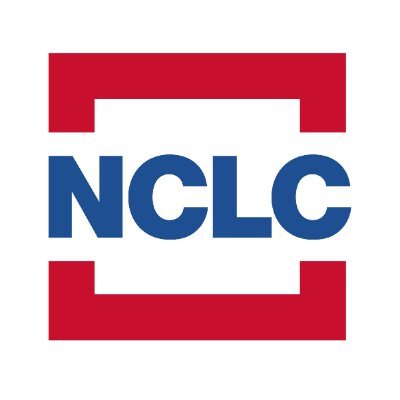 This is a summary of information on mortgage forbearance that originally appeared on the National Consumer Law Center (NCLC) website. Read the full article here.
This is a summary of information on mortgage forbearance that originally appeared on the National Consumer Law Center (NCLC) website. Read the full article here.
Assistance for NJ Homeowners Regarding Mortgage Forbearance
If you have a federally backed mortgage loan, the CARES Act provides two kinds of relief: a foreclosure moratorium and the right to a mortgage forbearance.
Foreclosure Moratorium: CARES Act § 4022(c)(2) forbids mortgage servicers of federally backed mortgage loans from “initiat[ing] any judicial or nonjudicial foreclosure process, mov[ing] for a foreclosure judgment or order of sale, or execut[ing] a foreclosure-related eviction or sheriff sale” through May 17, 2020. This applies only to occupied properties and does not require the homeowner to take any action.
Forbearance: A forbearance is a temporary suspension of the borrower’s duty to make full mortgage payments and the mortgage creditor’s right to enforce any delinquency. CARES Act § 4022(b) requires servicers of federally backed mortgage loans to grant forbearance requests from borrowers “experiencing a financial hardship due, directly or indirectly, to the COVID-19 emergency.” The language of the act is mandatory. The servicer may not require anything “other than the borrower’s attestation to a financial hardship caused by the COVID-19 emergency.” See CARES Act § 4022(c)(1). Once the borrower has affirmed the COVID-related hardship, the servicer must provide the forbearance. Although some servicers have ignored this requirement, CARES Act § 4022(b)(1) explicitly provides that borrowers are eligible “regardless of delinquency status.” It does not matter if the borrower is delinquent at the time of application or was delinquent before the President’s March 13, 2020 emergency declaration.
The CARES Act § 4022(b)(3) provides that no fees, penalties, or interest beyond the amount that would be charged if the borrower was making timely payments shall be charged or shall accrue during the forbearance period. Under CARES Act § 4021, the borrower’s credit report will continue to show the same status as before the forbearance. If the borrower was current, the loan will be shown as current during the forbearance (or delinquent if the borrower was behind when the forbearance started). This part of the Act applies to all mortgages—even those not federally backed.
The CARES Act says the initial forbearance must be “up to 180 days.” Some servicers automatically granting the full 180 days at once and others grant shorter initial periods that can be extended. The Act also requires servicers to grant a 180-day extension (after the first 180-day forbearance) upon a borrower’s request. The servicer must also terminate the forbearance early upon request.
What Happens at the End of the Mortgage Forbearance?
After the mortgage forbearance, the principal, interest, and escrow payments that would have come due during the forbearance do not go away. You are still legally obligated to pay them.
If you cannot afford a lump sum or repayment plan, servicers must evaluate you for other options, which are summarized below.
- Fannie Mae: Servicers must contact borrowers at least thirty days before the forbearance ends and must evaluate borrowers for one of several loan modification options. For the disaster-based options that are used for COVID-19, the borrower must have been current or less than thirty-one days delinquent as of March 13, 2020.
- Freddie Mac: Servicers must contact the borrower at least thirty days before the forbearance ends. If the borrower was more than one payment behind before the COVID national emergency was declared on March 13, 2020, the borrower will have the standard loss mitigation options. Otherwise, if the loan was current or less than thirty-one days delinquent, the servicer will review the borrower for disaster-based options that are used for COVID-19. If the servicer cannot reach the borrower by phone at the end of the forbearance, and the borrower is eligible for a streamlined offer for a Flex Modification, the servicer must send the borrower an offer for a Flex Modification, without getting any application.
- VA loans: Servicers should review borrowers for loss mitigation options at least thirty days before the end of the forbearance. This includes all loss mitigation options described in the standard VA Servicer Handbook, including those related to disasters. VA Circular 26-20-12 explicitly states that servicers must not require a borrower who receives a CARES Act forbearance to make a lump sum payment after the forbearance period ends.
- FHA loans: Before the end of the forbearance, the servicer must evaluate the borrower for a COVID-19 National Emergency Standalone Partial Claim Modification. Borrowers who can afford their pre-crisis payment and who were less than thirty days past due as of March 1, 2020 may be offered a partial claim. If that is not sufficient to bring the borrower current, or if the borrower is not eligible for a partial claim, the servicer must evaluate the borrower for all other loss mitigation options
- USDA Guaranteed Loans: At the end of the forbearance, the servicer must determine if the borrower can resume regular payments and, if so, offer the borrower a repayment plan. At the borrower’s request, the servicer shall extend the loan term by an amount at least the length of the forbearance. See
Homeowners Who Do NOT Have a Federally Backed Mortgage Loan
If you have a mortgage loan that does not meet the definition of “federally backed mortgage loan,” CARES Act protections do not apply.
How to Get Non-CARES Act Relief and What to Ask For – You should contact your servicer by phone or online. Online may be the faster option as servicers are currently overwhelmed by the number of calls they are receiving.
You can also make a formal request for assistance by writing to the servicer. Check the servicer’s website or a recent account statement for the appropriate mailing address. Letters to the wrong address may be delayed or lost (or not effective if intended as a Request for Information). Frame the letter as a Request for Information (RFI) about loss mitigation options. Such a letter will be governed by the response rules in RESPA’s Regulation X.
Tips for Homeowners Regarding Mortgage Forbearance
- Servicer call centers are currently overwhelmed. You may want to try applying online through the servicer’s account portal.
- If you have a financial hardship due to the COVID-19 emergency, you must state that clearly.
- Find out how long the forbearance will last. You are entitled to a total forbearance period of up to 360 days under the CARES Act.
- Find out your options for making up the payments at the end of the Forbearance. Be prepared for them to say they want a lump sum payment, so you must be ready to ask for a modification or other payment arrangements.
- If you have escrow account, and the lender pays the taxes or insurance, ask how these items will be paid during the forbearance.
- Borrowers who do not have an escrow account should continue to pay their property taxes, insurance, HOA fees, and other home-related items, if possible.
Should I Request Forbearance?
If You Can Still Afford to Make the Payments, it is better to continue making them. Payments skipped under the forbearance will still become due sooner or later. Borrowers may not be satisfied with the repayment options available at the end of the forbearance. There is a risk that a servicer will make a mistake when processing the forbearance, and unwinding such errors can be difficult.
If You Cannot Afford to Continue Paying, requesting a forbearance is almost certainly a better option than simply defaulting on the loan. Loans in default accrue extra fees, such as late charges and property preservation inspections. The servicer will eventually begin to process the loan for foreclosure. And even if the borrower ultimately reinstates the loan by making the missed payments, a default and foreclosure will harm the borrower’s credit more than a forbearance. Consumers with payment problems should contact their servicer before they miss a payment.
If you need assistance or believe you have been improperly denied assistance, contact Ira J. Metrick, Esq.



